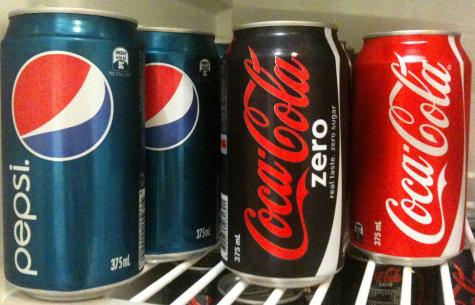Three of Australia’s leading health organisations have joined forces to warn of the risks of sugar-sweetened drinks such as soft drinks, but the campaign has been denounced by the Australian Beverages Council as “misguided”.
The Cancer Council, Diabetes Australia and the National Heart Foundation of Australia have called for immediate action by governments, schools and non-government organisations such as sport centres to tackle soft drinks as one of the key contributors to obesity as well as chronic diseases such as diabetes, cardiovascular disease and cancer.
According to Craig Sinclair, Chair of the Public Health Committee at Cancer Council Australia, comprehensive action is needed to highlight the amount of sugar and empty kilojoules in soft drinks and the potential health impacts of high levels of consumption.
“Soft drinks seem innocuous and consumed occasionally they’re fine, but soft drink companies have made it so they’re seen as part of an everyday diet – there’s an entire aisle dedicated to them in the supermarket, most venues and workplaces have vending machines packed with them, they’re often cheaper than bottled water and are advertised relentlessly to teenagers.
“Sugary drinks shouldn’t be part of a daily diet — many people would be surprised to know that a regular 600ml soft drink contains about 16 packs of sugar and that’s a lot of empty kilojoules. Yet they’re being consumed at levels that can lead to serious health issues for the population – it’s time to stop sugar-coating the facts,” Mr Sinclair said.
But the CEO of the Australian Beverages Council, Geoff Parker, believes that focusing on only one source of kilojoules in the diet ignores the concept of “total diet”.
“No one food or beverage causes overweight or obesity. Consuming more kilojoules than what is burnt through physical activity is what leads to weight gain,” Mr Parker said.
He said that the Australian beverage industry has voluntarily initiated changes over the past decade to be “part of the solution”, including:
- restricted marketing of sugar-sweetened beverages to children under 12
- labelling the per serve kilojoules on cans and bottles
- reformulating products to include a wide range of low and no kilojoule options, and
- restricted sales of sugar-sweetened soft drinks to primary schools to comply with school canteen guidelines.
A recent survey by the Cancer Council and Heart Foundation found that one in five secondary schools in Australia had vending machines - 49% of which contained sports drinks, and 38% soft drinks.
“State governments can help to address the problem by limiting the sale of sugary drinks in all schools and encouraging places frequented by children and young adults such as sporting grounds to reduce the availability of these drinks. We’d also like to see workplaces and healthcare settings getting on board,” according to the Acting CEO of the Heart Foundation, Kellie-Ann Jolly.
Diabetes Australia CEO, Greg Johnson, also suggests a bigger tax on sugar-sweetened drinks - a suggestion described as "flawed, short-sighted and lazy" by the Executive Director of the Australian Association of Convenience Stores, Jeff Rogut.
"The economic ramifications for manufacturers, suppliers and retailers [of imposing a tax] would be immense, yet the potential for such measures to achieve improved health outcomes is unknown," Mr Rogut said in a statement.
Sugary drinks are widely consumed by Australian adults and children. In the 12 months to October 2012, Australians bought 1.28 billion litres of carbonated/still drinks with sugar, with regular cola drinks being the most popular (447 million litres).
The 2007 Australian National Children’s Nutrition and Physical Activity Survey found that almost half (47%) of children 2 to 16 years of age consumed sugar-sweetened beverages (including energy drinks) daily, with a quarter (25%) consuming sugary soft drinks daily.



















__small.png)










